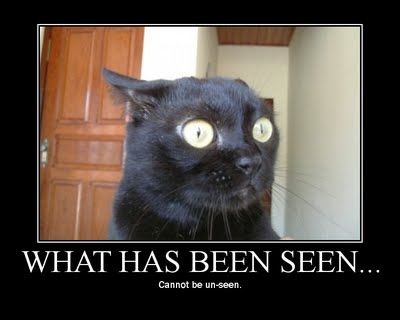We shouldn't take the computer analogy too literally. In computing there may be no such thing as a semi-reboot, but we're talking Hollywood here, not programming.
It's kind of amusing that I made a post just above yours about the usage of the word literal, and then you post about taking things literally.

I'm not taking the analogy literally, that's kinda hard to do. I'm just taking it how it was meant to be. I get that other people use or interpret it differently, just like they do with other words. I think that's where the confusion lies here.
Mr Awe and others probably define a reboot as a continuity being wiped. Dennis and others probably define it as a sweeping number of changes (setting, characters, etc) while still retaining the gist of what its about. They argue over semantics.
Personally, I think the latter description dilutes the meaning too far. You could pretty much say that CSI:NY was a reboot by Squiggy's meaning. Not that the CSI shows have a huge body of continuity to work from or anything, but those seem more like spin-offs than reboots to me. If you start to apply it everywhere, what's the point of the word?
And that brings us to "semi-reboot" (or any other strange variations) like you mentioned. That really just muddles things even further. What the heck is a semi-reboot? I'm going to say it's when you restart the engine of an 18-wheeler, and no one can prove me wrong!



